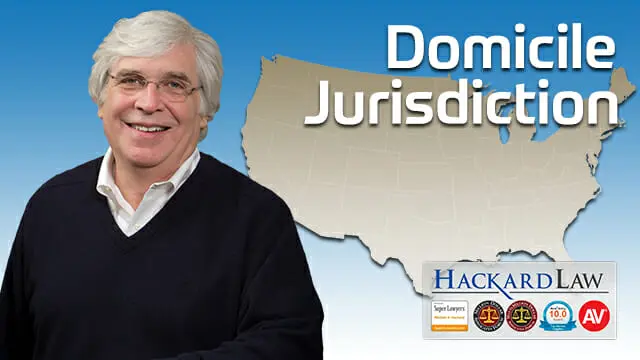
Estates, Domicile, Jurisdiction and Interstate Family Feuds | California
Estate disputes are ugly – sometimes really ugly. So when trustees, beneficiaries, and heirs step into the fight, good counsel – that is, probate and trust litigation attorneys – should help their clients count the costs. Many times that is easier said than done. Given the complications of estate fights, estimating costs can be an elusive process.
One particular estate fight focused on the decedent’s domicile may become like a runaway train. Fighting estate battles in two or more states can seriously tax a trust, heir, or beneficiary’s bank account. The fight over of a decedent’s home may be protracted and susceptible to inconsistent state rulings. A person may reside in multiple states but only be domiciled in one. A California Appellate Court identifies the California position: “Domicile” is the one location with which, for legal purposes, a person is considered to have the most settled and permanent connection. It is the place where they intend to remain and to which, whenever they are absent, they have the intention of returning.
Common domicile fights include circumstances similar to the following. Elder parent has a will and a trust. The elder is the trustee of the trust during her lifetime, and her oldest son, a Washington resident, is the successor trustee to the trust. The elder is a longtime San Francisco resident. The elder is diagnosed with dementia. Shortly after the diagnosis oldest son asks his mother to move to Washington so that he and his wife may care for her. Mother moves to Washington, lives there for several months and then returns to California where her daughter helps to take care of her. Mother executes a new will and passes away in San Francisco a few months after returning.
Son begins the administration of mother’s trust in Washington. Daughter files mother’s will in San Francisco. Son objects to the will and argues that the estate belongs in Washington. The multistate saga begins.
Issues abound. Did mother – suffering from dementia – have the capacity to make a valid will? Did mother have the capacity to determine her domicile if she was otherwise mentally alert? Even if most of mother’s assets were held by a valid trust, did the existence of mother’s personal property in San Francisco confer jurisdiction over mother’s estate? Did such jurisdiction extend to the trust?
Questions can go on and on. That said, when faced with such circumstances it is important that lawyers and their clients try to work with their opponents toward an early resolution of these issues. Failing to do so may cause untold expense and heartache. Sometimes, despite best efforts, disputes will not go away. So be it, but efforts at early peacemaking are not necessarily a sign of weakness – they might well be a sign of wisdom and experience.

 (916) 775-8542
(916) 775-8542